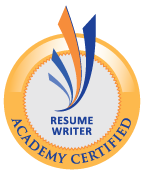Our blog series in July and August will discuss networking during your job search. The people you know can be the best way for you to find your next job. According to a 2012 survey by Right Management, person-to-person networking is the single most effective way to find a new job, with 46% of jobseekers identifying networking as the reason they found their most recent job. Read below and check back on our blog for more networking tips.
Part II: Who Is Your Network?
Every person you meet is a potential networking contact. If you don’t already have a list, start one! Make a list of all of your contacts, including past employers, vendors, customers, colleagues, competitors, bankers, and others. You never know who may have a great lead or know of an unadvertised opportunity. Then, expand that list.
Here are some ideas for other people to add to your network.
Personal Contacts:
• Friends
• Relatives
• Parents of children’s friends
• Parents of your friends
• Relatives of friends
• Club members
• Associations
• Military service personnel
• Sorority/fraternity
• Cousins
• Neighbors
• Sports team members
Business Contacts:
• Current coworkers
• Previous coworkers
• Previous managers
• Consultants
• Vendors and suppliers
• Retirees
• Seminar, conference, and workshop attendees
• Business owners
• Competitors
• Clients/customers
• Venture capitalists
• Members of industry associations
• Contacts you make at conventions and job fairs
Third-Party Contacts:
• Accountants
• Doctors
• Real estate brokers
• Financial advisors and bankers
• Attorneys
• Dentists
• Mortgage bankers/brokers
• Insurance agents
• Travel agents
Educational Contacts:
• Elementary, middle, and high school friends and teachers
• College classmates and friends
• Alumni association contacts
• Graduate school classmates
• Other alumni of your schools
• University career-placement office staff
• Former professors and advisors
Community Contacts:
• Civic and political leaders
• Librarians
• Clergy/ministers
• Chambers of Commerce
• Community groups (Kiwanis, Rotary, Scouts)
• People you meet while volunteering
• Health club members
Note: This blog post only touches on certain aspects of this topic and is not a comprehensive list. This blog post is an educational and informational resource for job seekers and is not a substitute for working with a resume writer or other professional. See our Terms and Conditions for additional information.






Comments are closed.